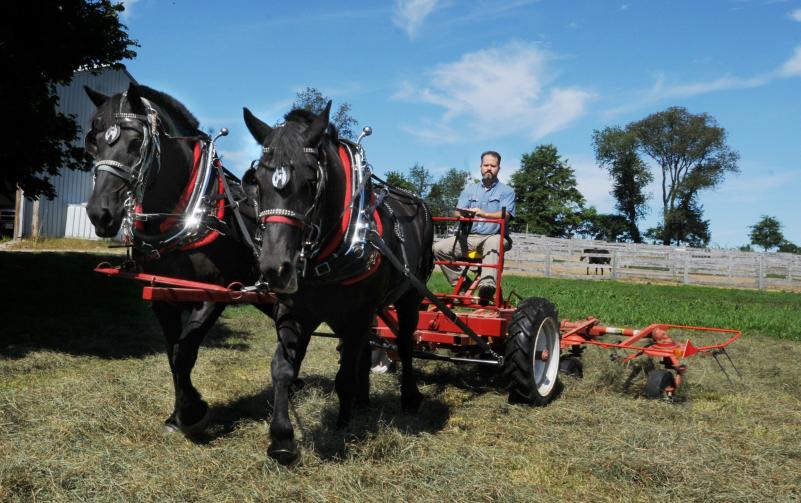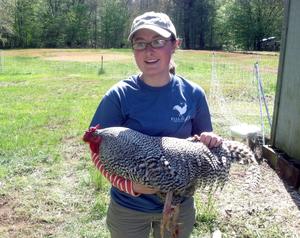I was at a farm dinner in Maine the other night, a long table of 60 people eating corn, chicken, salad, a spectacular herb sorbet and other goodies. When one of the hosts arose to ask someone to describe the first course on the table – huge marrow bones from the farm’s cattle- she introduced not the chef but the farmers. Similarly, at a fund-raiser on Cape Cod a week or so earlier, the talk was all about the provenance of the produce and meat rather than the cooking technique. The most popular guy was the oyster grower.
This is a fine trend. With all due respect to my chef friends (many of whom will agree with this statement), most cooking is dead-easy and pretty quick: it takes 20 minutes to roast a marrow bone, and an ambitious fifth-grader can get it right on the first try. A more complicated dish, like the seared corn with chorizo that was served a bit later, might consume an hour and require a bit of skill.
But raising and butchering the cows and pigs that produced the marrow bones and meat for the chorizo? Growing the corn? These are tasks that take weeks, if not months, of daily activity and maintenance. Like anything else, you can get good at it, but the challenges that nature (ask the corn farmers of Kansas) and the market (ask Tyson Foods, whose profits just fell 61 percent) throw at you are never even close to being under control in the same way that a cook controls the kitchen.
What a cook doesn’t control is ingredients, and that’s where the debt to farmers comes in. In the last 10 or 15 years, we’ve seen the best New York chefs scouring the Greenmarket weekly and setting up exclusive relationships with farmers throughout the Northeast; that kind of behavior is nationwide. And even before that, Alice Waters hired people full-time to make sure the ingredients her people cooked with were the best.
Since late summer brings more real food to more people than other times, right now the rest of us can eat as well as if we had our own chef. Whether it’s a salad of raw tomatoes, peaches and basil, a dish of roasted eggplant with nothing more than soy sauce, a real chicken smeared with a paste of fresh herbs, it’s all right out there. In much of the country, even some conventional supermarkets purchase from nearby farms. On my recent trip through New England, I saw a bin of corn being filled from burlap sacks by a guy (a farmer, I presume) who’d driven up in a pickup; there was a similar scene involving cucumbers. Big deal, but it shows it can be done.
The cry will ring out: Not everyone can afford fresh fruits and vegetables, especially from farm stands! And, sadly, it’s true. But this is precisely why we need to support a herd of actions that will make it possible for more people to have access to real food:
- We need to reduce unemployment and increase the minimum wage (including that for farm and restaurant workers). This (obviously) goes beyond the realm of food, but it’s key to improving the quality of life for many if not most Americans. (Here’s a strong argument for that.)
- We need to not cut but raise the amount of support we give to recipients of food stamps. A good example is New York City’s Health Bucks program, where food stamps are worth more at farmers’ markets (which don’t, as a rule, sell sugar-sweetened beverages!).
- We need not only to attack the nonsensical and wasteful system that pays for corn and soybeans to be grown to create junk food and ethanol, but to support local and national legislation that encourages the birth of new small-and-medium farms. We need to encourage both new and established farms to grow a variety of fruits and vegetables, to raise animals in sensible ways and, using a combination of modern and time-tested techniques, treat those animals well and use their products sensibly.
In short, we need more real farmers, not businessmen riding on half-million-dollar combines. And if you haven’t seen a real farmer, go visit a one- or two-acre intensive garden; it’s a mind-blowing thing, how much can be grown in a relatively small space. Then imagine thousands of 10-, 20- and 100-acre farms planted similarly: the vegetables sold regionally, the pigs fed from scraps, the compost fertilizing the soil, the cattle at pasture, the milk making cheese .
The naysayers will yell, “this mode of farming will not produce enough corn and soy to feed our junk food and cheeseburger habit,” and that’s exactly the point. It would produce enough food so that we can all eat well. It’d produce enough food so we can slow the hysteria about our inability to feed the expected 9 billion earthlings. After all, we’re not doing such a great job of feeding the current 7 billion. Why? Largely because too many resources go into producing junk food and animal products.
The Northeast, where everything but dairy farming was left for dead a decade ago, and where many dairy farmers hold on for dear life, was once its own breadbasket; sometimes it feels as if it can become that again. Local food grown by local farmers is a wonderful thing; more food grown by farmers who sell regionally brings a level of practicality to the system. Boats and trains from all over the Northeast once supplied New York City (obviously incapable of producing much in the way of truly “local” food, unless you envision re-converting Westchester, Nassau, Bergen and Fairfield counties to farmland) with food that was picked during the day, shipped at night, and sold the next day. By comparison, the parsley sitting in your supermarket right now is at least a week old and probably older, barring some incredible good fortune.
Real farmers, like gardeners, take pride in every tomato. And while agribusiness continues to try to find a way to produce a decent-tasting tomato (there’s a new scheme now; it won’t work), anyone who wants to can buy tomatoes and other fantastic produce until Thanksgiving, and – in much of the country and without much effort – well into the early winter. The thrill of seasonality – not only real tomatoes but firm eggplants and cucumbers with super flavor and minimal seeds, arugula that demonstrates why it was once called rocket, peaches with loads of fuzz and so on – reminds me why I don’t often buy those things out of season.
But to get these beautiful veggies, we need real farmers who grow real food, and the will to reform a broken food system. And for that, we need not only to celebrate farmers, but also to advocate for them.
——————————————————————————————————————
Please share this post with your friends. And for more ideas, videos and challenges along these lines, please join my Facebook Group; Just Food Now or check out my web page Just Food Now. And go here for my World.edu posts.
 Monty and Rose, two dark-brown Percheron draft horses, provide the muscle at Amethyst Farm on North East Street.
Monty and Rose, two dark-brown Percheron draft horses, provide the muscle at Amethyst Farm on North East Street.








